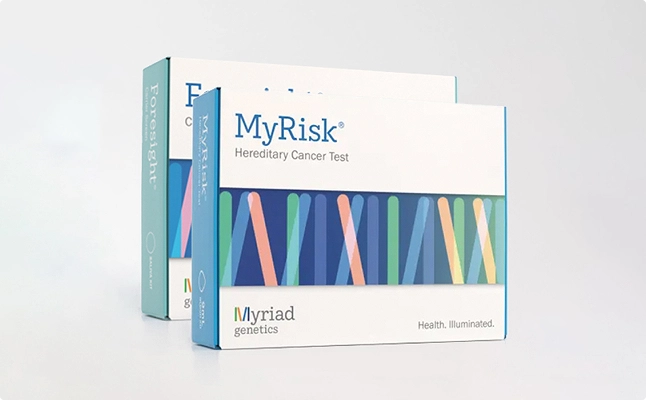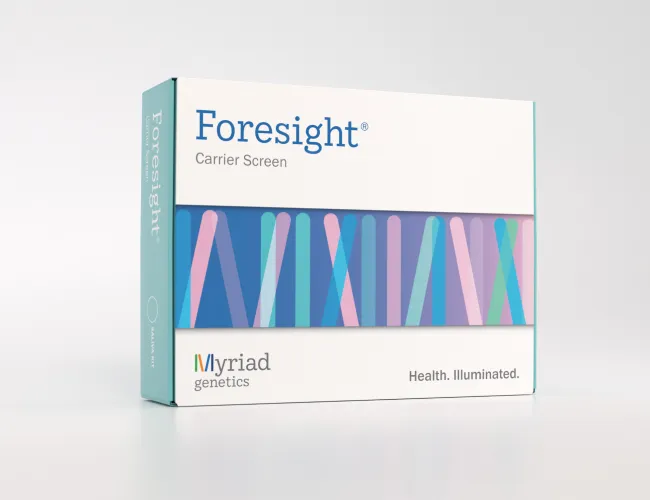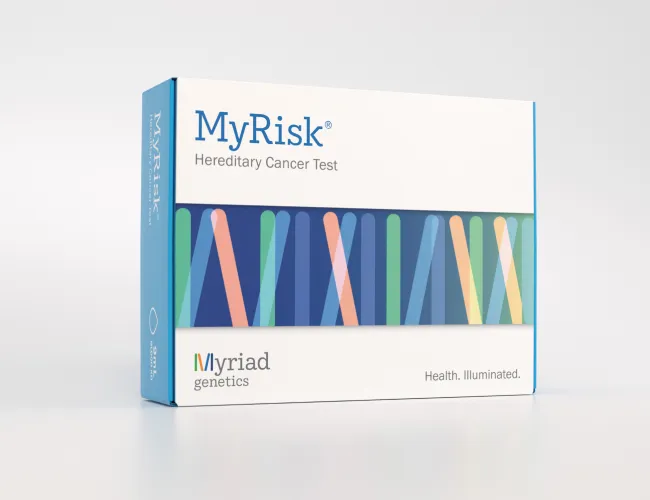
Who should consider taking this test?
Hereditary Cancer Test
Anyone who is interested in learning about their inherited risks for cancer can take the test. The likelihood of testing positive is higher for those with a personal and/or family history of cancer, as well as those with Ashkenazi Jewish ancestry.
The panel offered through jscreen is designed for individuals of all ancestries and includes hereditary cancer risks found in people of all different backgrounds.
The Reproductive Carrier Screen
Test is intended for people who are planning to start or expand their family and wish to know if they are at an increased risk of having a child with a genetic condition.
How long will it take to get results?
Test results are provided in an easy to understand report available within 3 weeks of the sample arriving at the lab. You will have an opportunity to discuss your results with a genetic counselor. If an individual or couple learns that they or their future children are at risk for a genetic disease, a genetic counselor will provide options for family planning or medical care.
Will genetic testing be covered by my insurance?
95% of private insurance companies have coverage for hereditary cancer testing based on data from our Myriad Genetics.
Through insurance coverage and financial assistance, for those who meet criteria for testing, 90% of tested customers pay $0 out-of-pocket based on data from Myriad Genetics
If your insurance does not pay for testing, you do not meet your policy’s guidelines for testing, you are uninsured, or you have a high unmet deductible, you can forego insurance and directly pay a self-pay price of $249 for your test. If you cannot afford testing, there are financial assistance programs available for those who qualify.
Clear cost estimates from Myriad Genetics
1. Self-pay: $49 due now. (and $249 will be billed to you from Myriad Genetics). Nothing is billed to insurance. A customer service representative from Myriad Genetics will call you to collect credit card payment after you ship your kit back with the prepaid shipping label.
2. Insurance: $49 due now, the rest is billed to your insurance. If you select to pay for your test through insurance, a few days after Myriad Genetics receives your saliva sample, they will contact you via email and/or text to let you know your cost estimate.
Your estimate will consider:
- Your insurance plan
- How much of your deductible has been paid so far this year
- Any copays or coinsurance per your plan
- Eligibility for financial assistance
You will receive an email/text from Myriad Genetics notifying you that your estimate is ready to view. Most people will pay $0, but if your estimate shows you’ll have an out-of-pocket cost that creates a hardship, you have options which will be provided to you.

After you complete your registration and your kit is ordered, Myriad Genetics will send you the kit to collect your saliva sample.

And receive your kit by mail.

Collect your saliva sample from the comfort of your home.

Receive your results within 3 weeks after mailing the kit with the prepaid shipping label.

Schedule your virtual genetic counseling session.
.webp)
Actionable
Hereditary cancer risk test
Test includes an easy to understand report with actionable results that will inform a personalized care plan. The test evaluates 48 genes to help identify the risk of 11 different types of hereditary cancer, including breast, colon, and pancreatic cancer.
Reproductive carrier screen
Test results are provided in an easy to understand report available within 3 weeks of the sample arriving at the lab. If an individual or couple learns that they or their future children are at risk for a genetic disease, a genetic counselor will provide options for family planning or medical care.
Affordable
We are committed to providing you with access to reliable and affordable genetic testing. Cancer genetic testing is covered by most insurance plans, for those who meet certain criteria, and Myriad Genetics offers the option of affordable cash pay prices and financial assistance programs for those who qualify.
Peace of mind
The hereditary cancer risk test
In addition to providing results for the 48 genes tested, a genetic counseling session, a personalized care plan, and a breast cancer risk score for eligible individuals is provided. After your genetic counseling appointment, you will have a clear understanding of your results, an assessment of your risks, and a well-defined plan for your next step.
Reproductive carrier screen
If an action plan is needed, a care navigator will work with you on a plan that fits your needs. You can feel confident knowing that the carrier screen offered through the jscreen program, is the only validated carrier screening panel in the US backed by 20+ peer-reviewed publications and >1.6M patients screened.
Find answers to commonly asked questions about our genetic testing and services.
Should I consider testing if I have had cancer in the past?
Yes. Genetic testing may provide an explanation for a past diagnosis and help inform risks for the future. In some cases, hereditary cancer syndromes can increase the risk for more than one type of cancer. It can also be informative for other family members if a genetic risk is identified.
Note: please contact us HERE prior to registration if you have a current or past diagnosis of a hematological malignancy (blood cancer) or have received a stem cell or bone marrow transplant.
Should I consider testing if I'm a man (sex assigned at birth)?
Yes. The panel includes cancer predisposition genes associated with risks for prostate, colon, pancreatic and many other types of cancer affecting men. Men can also pass on cancer gene mutations to their children.
What is cancer screening?
Cancer screening involves tests and procedures to detect cancer in its early stages. It can help identify cancer before symptoms appear, increasing the chances of successful treatment.
What is Jewish genetic testing?
Jewish genetic testing is a type of genetic screening that focuses on conditions that are more common in individuals of Ashkenazi Jewish descent. It can help identify potential risks and inform reproductive decisions.




